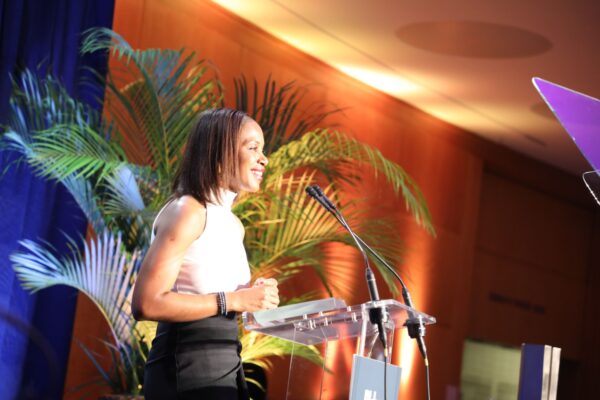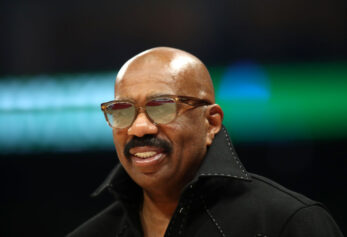By Amanda L Gordon
It seems crying in Goldman Sachs offices not only happens, but can lead to good things.
Gizelle George-Joseph, who accepted an award Tuesday for the bank’s One Million Black Women initiative from the Brooklyn Public Library, said she cried after the murder of George Floyd in May 2020.

“Jan Hatzius, head of the global investment research division, is in the audience tonight, and he can confirm that I was sitting in his office the week after George Floyd, ugly crying, when we decided that it wasn’t just important but necessary that we use the Goldman Sachs research platform to educate and to amplify the message of racial and economic inequality,” said George-Joseph, the division’s chief operating officer.
Less than a year later, Goldman Sachs announced the creation of One Million Black Women, a commitment to invest $10 billion over the coming decade to help address the biases that women of color have faced for generations. And again there were tears.
“We had a moment when we were all bawling when David Solomon actually announced it,” she said, referring to the bank’s chief executive officer. “Every single Black woman at Goldman converged.”
The data she’d helped compile informed the effort, and shows how much work there is to do. One example: Compared with White women, “Black women are three to four times more likely to die in childbirth in the US, and in New York City that number is 10 times,” she said. “Let’s just sit with that for a moment.”
The Brooklyn Public Library is working with Goldman Sachs to identify ways to help this demographic by hosting listening sessions with Black women in the borough.
At the bank itself, the number of overall Black employees in the US grew to 1,649 in November from 1,425 a year earlier. That represented a boost to 7.4% from 6.8%, though the number of Black women among its executives and senior officials dropped to 19 from 25.

As for George-Joseph, her command of the stage — with some stiff competition throughout the evening from Wynton Marsalis, Jon Batiste, the Brass Queens band and New York City Mayor Eric Adams — perhaps had something to do with her childhood. She grew up in Dominica under the leadership of Eugenia Charles.
“A Black woman was my prime minister for essentially 15 years of my life,” she said. “The transition to this country, where Black women were just as foundational to their communities but tremendously disadvantaged on a broad range of social and economic measures, was an adjustment.”
More stories like this are available on bloomberg.com.




